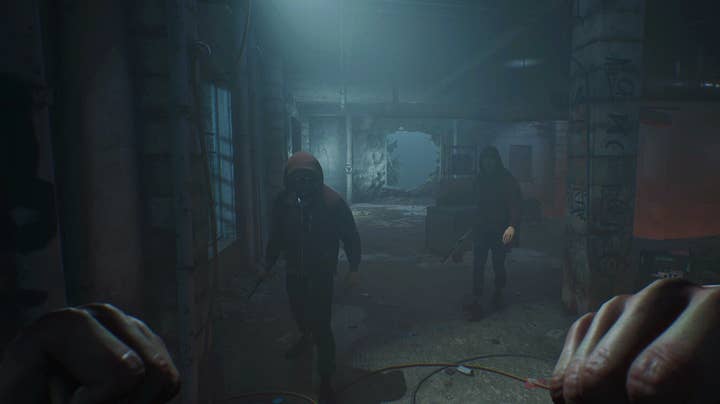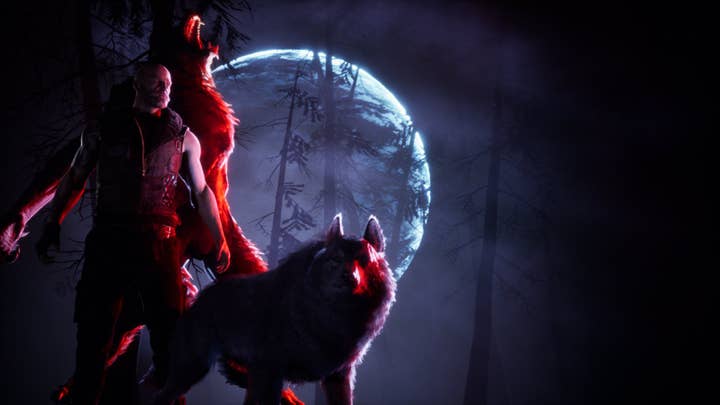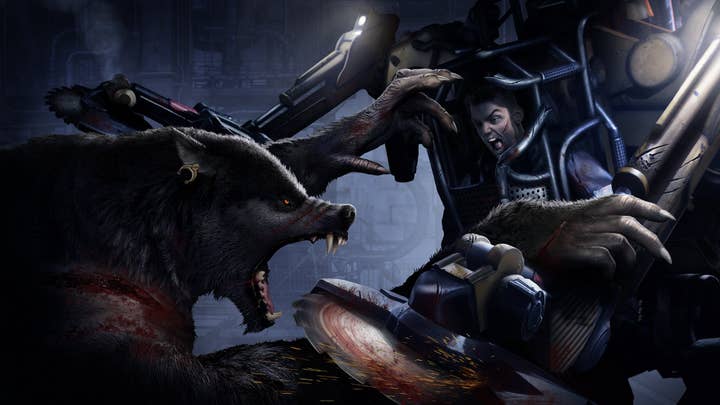Paradox's "very punk way" of sharing Vampire: The Masquerade IP
World of Darkness VP Sean Greaney explains why Paradox is opening its IP to fan creators
World of Darkness, the setting and IP behind games such as Vampire: the Masquerade and Werewolf: The Apocalypse, hasn't been all too active in video games since 2004's Vampire: the Masquerade - Bloodlines.
The title was considered a critical success but a commercial failure, and the brand would pull out of video games almost entirely until 2019, a year that saw the announcement of Bloodlines 2 (since hit with an indefinite delay) and the start of a number of releases in the World of Darkness universe.
This month, IP holder Paradox Interactive announced the Unbound initiative, under which the company freely distributes the WoD licence to independent video game developers for commercial use for an indefinite period of time.
The agreement under Unbound lets developers make games in the World of Darkness universe and distribute them using Itch.io, with Paradox retaining 33% of potential net revenues from a minimum reportable figure of $500. Games have to either be available for free or sell at a starting price of $5.99. Developers keep the rights to any assets Paradox Interactive doesn't provide.
"The game jam was a limited-time event, but developing a long-term relationship with your players isn't possible within 30 days"
The idea for Unbound stems from a month-long game jam Paradox ran in late 2021, itself inspired by a community-organised World of Darkness game jam from 2019. Sean Greaney, vice president for World of Darkness, calls opening the IP a sustainable next step following the success of the jam, which saw 87 game submissions.
"The game jam was a limited-time event with a cash prize as an incentive, but developing a long-term relationship with your players isn't possible within 30 days," Greaney explains. "So it's sustainability for World of Darkness, but also the creators."
The idea for Unbound grew organically from the Vampire Jam when it became clear many participants wanted to keep working on their games.
"We've had many, many questions from the community about when the next game jam would be, can they keep developing?" Greaney says. "As you'd expect, with the amount of time and passion involved in those games, people want to keep working on them."

Paradox announced six previous jam games as participants in Unbound, and these titles will now be developed further. Offering developers a way to make money from their projects via the royalty split, which Greaney calls "quite generous," is meant as an incentive to continue and eventually finish development on games, including those that began as jam projects.
He doesn't go into details on how exactly Paradox arrived at the 33% revenue split, but mentions that a global IP handles these matters differently to a digital storefront and that the proposed split influenced the choice of platform partner.
But Paradox also partnered with Itch.io due to its long history as a popular platform for independent creators that is already known for contests.
"It comes down to the flexibility that it offers indie developers, the submission process, and the ability to set the commercial frame for their project as well," Greaney says. "It's also a competitive environment that makes sense for these kinds of games. It's where many of these creators are and it's where many players that are looking for these kinds of experiences go."
As interesting as Unbound is as a community activity, there is a further business case for opening the World of Darkness IP to indie developers. Since 2019, Paradox has grown the WoD brand exponentially within video games, a step that Greaney describes as all but inevitable.
"Being able to produce video games experiences is relevant to the audiences that we once were, and are no longer," he says. "Story brands like World of Darkness, Dungeons & Dragons, Pathfinder and Cyberpunk are evolving to meet audiences where they are today."
"Being able to produce video games experiences is relevant to the audiences that we once were, and are no longer"
At the same time, World of Darkness is a large brand across several media, and experimenting how it works with different video game genres "may not be an immediate priority for [Paradox]," he adds.
In allowing creators to make games using the official licence, Greaney says, Paradox is both simply answering a demand by a passionate community, but also showcasing how versatile particularly the Vampire: the Masquerade IP is.
"It has a huge value in and of itself," he continues. "And to quote our creative director Justin Achille, it's a very punk way of going about it."
To give developers the biggest possible amount of freedom in creating their games, but also to make it clear to audiences they "aren't necessarily experiencing the kind of story that you'll find in in the official products," as Greaney puts it, developers agree that their work is separate from official World of Darkness canon.
No developer on Unbound will be held to the standards of the official products, but this way, Paradox upholds a clear distinction between their work and the fan-made product, even though the games in Unbound use the official World of Darkness licence.

"As we evaluate the initiative, we may look at ways to create additional developer-facing information that could help them if they choose to try and canonise the product," Greaney says. "It would be their decision, it wouldn't necessarily fall within our continuity. But it would be helpful for those who have an ambition to take this further to work with us on a deeper level."
Greaney mentions this deeper level several times, because essentially, Unbound is meant as an incubator, a way for game developers to supply a proof of concept and receive feedback directly from the intended audience.
"We're doing something that as far as we're aware, hasn't been done"
Submissions will be reviewed by the community, and Paradox wants to monitor Unbound for any particularly popular submissions and support them on social media and in company streams, but also to potentially work with further, for example through additional marketing support, or by helping the developer find a publisher for their game.
The best possible outcome however, is for Paradox themselves to work with a developer, either through a licensing or a publishing agreement.
Greaney calls Unbound "an incubator that is itself in incubation," which means that currently there are no set plans on how many games Paradox can potentially support further, or how long Unbound is going to run for.
"We're doing something that as far as we're aware, hasn't been done," Greaney says. "We have evaluated the cost of doing it, we have an idea for the process in place. And we'll obviously continuously review that based on quantity and quality and popularity there. I'm not saying there's an unlimited number of games that we can review. But we have been able to review an extremely high number of games in a relatively short period previously."
While it would be beneficial for Paradox to add a game to their catalogue, Greaney believes the idea to open the IP simply fits with World of Darkness and its community.
"I think it comes down to how you see your IP," he says. "Is it an IP that is a big, thick metaplot that you need to control and move forward every month, quarter, or year? Or is it an engine for telling stories? Depending on where you fall in that spectrum, this [model] is a good fit or it is not.
"I say this is a bit of an evolution of what story brands went through in the early 2000s, where there were a lot of attempts to command, control and deny UGC and we saw how that went for many, many big story brands. We don't live in that kind of age anymore. So I think that imitation is the best form of flattery. I would love to see this move beyond World of Darkness. And I think it'd be great for indie developers and for the industry."

